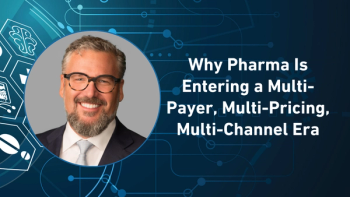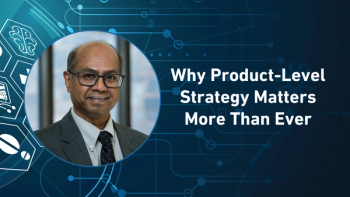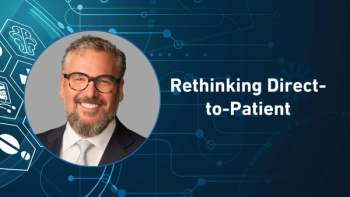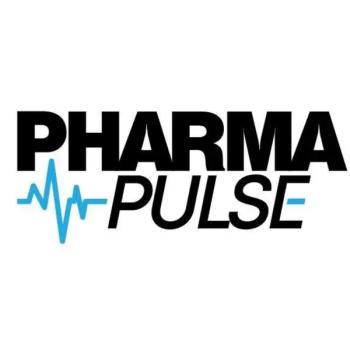
AI’s Role in Personalizing Life Sciences Digital Experiences
In the first part of his video interview with Pharma Commerce Editor Nicholas Saraceno, Chase Feiger, MD, co-founder, Ostro, discusses the value of AI technology when it comes to tackling digital commercialization challenges.
In a video interview with Pharma Commerce, Chase Feiger, MD, co-founder of Ostro emphasizes the value of AI technology in addressing challenges in digital commercialization within the life sciences industry. The main gap being addressed is the lack of personalized, intuitive, and engaging user experiences for healthcare professionals (HCPs) and patients, especially on digital platforms like brand websites. Feiger compares traditional digital experiences in life sciences to consumer-driven platforms like Netflix, where content is personalized based on past behavior and preferences. In the life sciences sector, however, regulatory constraints—such as the need for compliance with medical, legal, and promotional review processes—complicate this kind of personalization. Despite these challenges, AI and other consumer technology solutions can be adapted for this sector, prioritizing regulatory compliance while enhancing the user experience.
The solution, Ostro, was developed with this mindset: to create a digital experience for life sciences that balances personalization with strict regulatory standards. Feiger’s team includes experts from consumer tech, privacy law, and compliance fields to ensure that the platform is both effective and compliant. Ostro aims to transform the way HCPs and patients interact with medical content.
Feiger also shares the up-and-coming trends that he anticipates in relation AI and life sciences, and how the industry can position itself to capitalize on these trends.
A transcript of Feiger’s conversation with PC can be found below.
PC: How valuable can AI technology be when it comes to tackling digital commercialization challenges—especially within the life sciences industry—and what gaps were you trying to bridge when creating Ostro?
Feiger: If I were to ask you, what are the things that you take away when you compare a legacy experience to a consumerized experience, you would tell me primarily three things. You would say, Chase, I'm getting convenience, I'm getting personalization. You go, you log into your Netflix, you log into my Netflix, you're going to see very different sets of content based on other things that we've looked at in the past. You're going to see a very intuitive user experience, one that didn't require you to learn and to train on how to use it. It was just very naturally intuitive when you started using it. I like to say that when we think about things like artificial intelligence, when we think about things like what's happening within commercialization and life sciences, it's very similar, except the one constraint being, of course, that every piece of content in life sciences has to go through regulatory compliance review. It has to go through PRC [Promotional Review Committee], MLR [Medical, Legal and Regulatory].
But there are ways that a lot of these different technologies that we've seen utilized in the consumer space can be rebuilt and re-crafted with a regulatory compliance-first mindset, and that's what we did. We ranked regulatory compliance as number one when we looked at recreating a lot of these different novel software solutions and bringing them to this industry; [we’ve added] a former prosecutor to our team. The individual who ran data privacy over at McKinsey is on our team. We took this very, very seriously, and we partnered up with best-in-class consumer technology experts to rebuild these products. That's how we did it. When you ask, what is it that we actually did, and how valuable is it—if I'm an HCP and if I go to a brand.com, that HCP is a one-size-fits-all experience. If I receive a rep-triggered email as an HCP, a lot of that content is not really engaging and interactable. It doesn't enable me to ask the questions I want to ask. Maybe I'm looking for information on clinical trial information, looking for more efficacy, or MLA based information. I have to click around and try to go and find it. It doesn't personalize for me.
If I'm a patient and I land on a brand.com, the content doesn't personalize based on my health literacy level, i.e., do I have the health literacy level of a sixth grader? Do I have the health literacy level of an HCP that's trying to learn more about this new cancer immunotherapeutic? It's different for all groups. This is where artificial intelligence is having the most impact in terms of being able to provide that personalization for both the patient, as well as the HCP, making it easier for them to find that information they're looking for in a way that they can digest it, in a way that they can comprehend it, in a way that they can actually understand it and take better action on their care—if you're a patient or if you're an HCP—to learn more about that therapeutic treatment option with less clicking, less thinking, less scrolling.
Newsletter
Stay ahead in the life sciences industry with Pharmaceutical Commerce, the latest news, trends, and strategies in drug distribution, commercialization, and market access.




